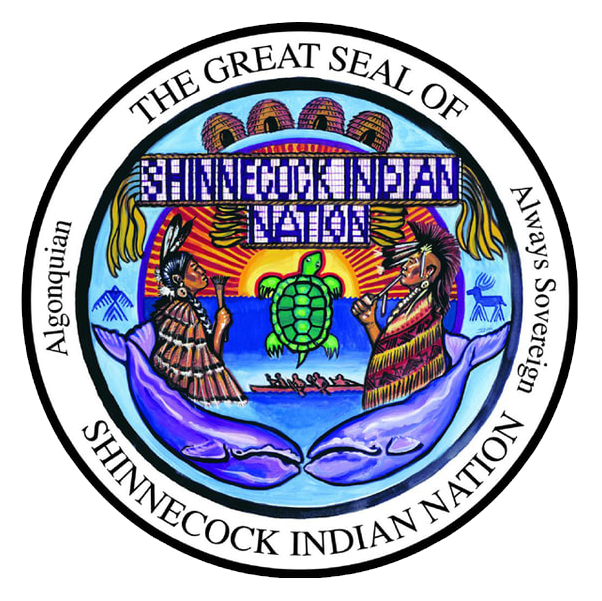Shinnecock Nation's tribal citizens are taking their fight for aboriginal fishing rights to federal court, aiming to protect the traditional practices that have sustained their people for generations.

The case, Silva v. Farrish, now before the U.S. District Court for the Eastern District of New York, could have significant implications for tribal sovereignty and the future of Indigenous-led environmental stewardship in the region.
The Shinnecock Nation argues that their rights to fish in the waters of Long Island, particularly Shinnecock Bay, have never been ceded, relinquished, or extinguished.
Their case contends that, because neither the United States nor the Shinnecock Nation has ever agreed to give up those rights, the State of New York has no authority to criminalize their fishing practices.
“This case is about affirming the continued existence of aboriginal Shinnecock fishing rights that have never been ceded away or extinguished in any manner,” Riley Plumer, attorney for the Shinnecock tribal fishers said in a press release. “My clients seek to continue exercising their ancestral fishing rights and carry forward Shinnecock traditional ways.”
Support for the Shinnecock comes from national Tribal organizations, including the National Congress of American Indians (NCAI) and the United South and Eastern Tribes Sovereignty Protection Fund (USET SPF), both of which filed amicus briefs on May 15, along with the Shinnecock Kelp Farmers.
“For centuries Shinnecock citizens have fished these waters as a rightful lifeway, not a hobby,” NCAI President Mark Macarro said in a press release. “When states ignore that living history and criminalize traditional harvest, they violate the very principles of Tribal sovereignty on which this Nation was founded.”
The Shinnecock Kelp Farmers, an Indigenous women-led group focused on environmental restoration through sustainable kelp farming, also weighed in, highlighting the connection between Indigenous rights and ecosystem health.
“We have a right to fish, to gather, to hunt, and we never ceded or gave away those rights,” Tela Troge, one of the Kelp Farmers said in a press release.
The Shinnecock have fished, farmed, and stewarded the waters of the Peconic Estuary and Atlantic Ocean for thousands of years. Tribal members continue to rely on those waters for food, cultural practices, and environmental restoration.
“The Shinnecock Indian Nation is an inherently sovereign government that predates the arrival of colonizing forces, and “Shinnecock’s aboriginal fishing rights flow from this inherent sovereignty. Federal Indian law says Shinnecock retains these rights until clearly abrogated by Congress or legally relinquished by the Tribal Nation. USET SPF is proud to stand in support of Shinnecock and its citizens in calling on New York to recognize these inherent rights,” said Kirk Francis, President of USET SPF and Chief of the Penobscot Nation.
However, pollution and state interference have made their efforts harder. Despite these challenges, the New York State Department of Environmental Conservation has refused to recognize the Nation’s fishing rights or work collaboratively to manage local aquatic resources.
More Stories Like This
NCAI Passes Two Emergency Resolutions on Immigration Enforcement ActivitiesChickasaw Lighthorse Police Officer named Indian Country Law Enforcement Officer of the Year
Indian Gaming Association Rallies Broad Coalition Against Sports Event Contracts It Calls Illegal Threat to Tribal Sovereignty
Navajo Resources and Development Committee Issues Notice on Livestock Inspection Requirements
American Prairie, Tribal Coalition Files Protest Over Rescinded Grazing Rights
Help us defend tribal sovereignty.
At Native News Online, our mission is rooted in telling the stories that strengthen sovereignty and uplift Indigenous voices — not just at year’s end, but every single day.
Because of your generosity last year, we were able to keep our reporters on the ground in tribal communities, at national gatherings and in the halls of Congress — covering the issues that matter most to Indian Country: sovereignty, culture, education, health and economic opportunity.
That support sustained us through a tough year in 2025. Now, as we look to the year ahead, we need your help right now to ensure warrior journalism remains strong — reporting that defends tribal sovereignty, amplifies Native truth, and holds power accountable.
 The stakes couldn't be higher. Your support keeps Native voices heard, Native stories told and Native sovereignty defended.
The stakes couldn't be higher. Your support keeps Native voices heard, Native stories told and Native sovereignty defended.
Stand with Warrior Journalism today.
Levi Rickert (Potawatomi), Editor & Publisher


